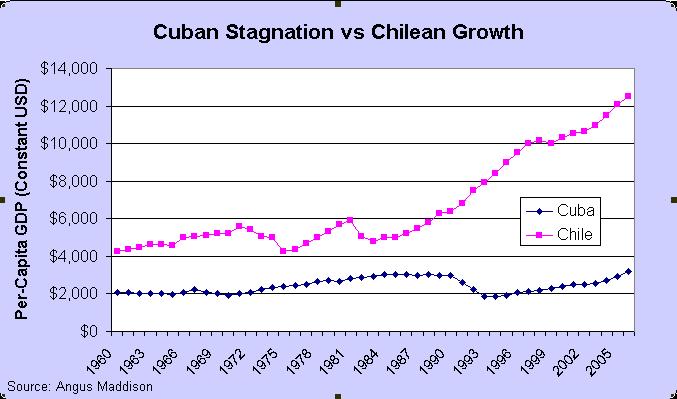Here’s a story for the better-late-than-never file. Former Cuban dictator Fidel Castro confessed that communism doesn’t work and that his nation’s economic system should not be emulated.
Fidel Castro told a visiting American journalist that Cuba’s communist economic model doesn’t work, a rare comment on domestic affairs from a man who has conspicuously steered clear of local issues since stepping down four years ago.
The fact that things are not working efficiently on this cash-strapped Caribbean island is hardly news. Fidel’s brother Raul, the country’s president, has said the same thing repeatedly. But the blunt assessment by the father of Cuba’s 1959 revolution is sure to raise eyebrows.
Jeffrey Goldberg, a national correspondent for The Atlantic magazine, asked if Cuba’s economic system was still worth exporting to other countries, and Castro replied: “The Cuban model doesn’t even work for us anymore” Goldberg wrote Wednesday in a post on his Atlantic blog.
Too bad Castro didn’t have this epiphany 50 years ago. The Cuban people languish in abject poverty as a result of Castro’s oppressive policies. Food is harshly rationed and other basic amenities are largely unavailable (except, of course, to the party elite). This chart, comparing inflation-adjusted per-capita GDP in Chile and Cuba, is a good illustration of the human cost of excessive government. Living standards in Cuba have languished. In Chile, by contrast, the embrace of market-friendly policies has resulted in a huge increase in prosperity. Chileans were twice as rich as Cubans when Castro seized control of the island. After 50 years of communism in Cuba and 30 years of liberalization in Chile, the gap is now much larger.

